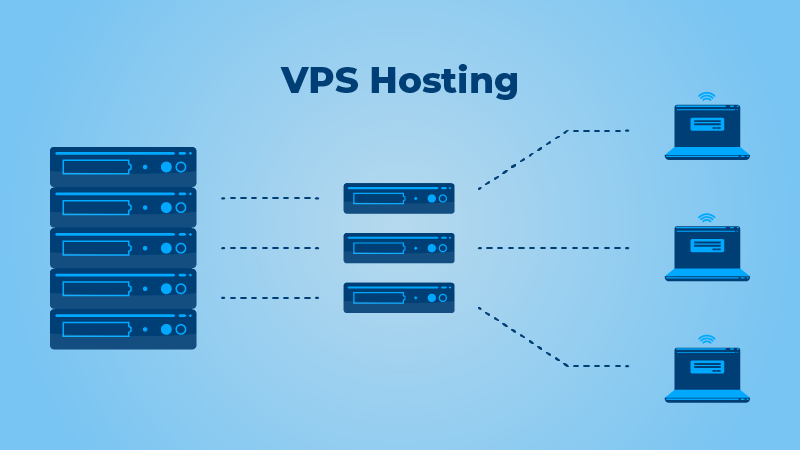When to Move to VPS Hosting
Following a consideration of the advantages of VPS hosting over other solutions, the following are the typical indicators that it is time to upgrade to VPS hosting.

1. The number of visitors to your website has significantly increased.
We’ve all been there: your new website has just gone up, and you’re excitedly watching your hit rates to see how many people are visiting. Over time, the few hits per day that you first saw continue to increase, and before you realise it, you’re getting hundreds or thousands of visitors every day.
Each visitor to your website consumes resources, and if your Shared Hosting account consumes too much, your web provider may take action. Your traffic may come to a standstill due to a variety of factors ranging from throttling to account suspension.
Although most web hosts offer a few Shared Hosting plans to choose from, there is a limit, and once you reach that limit, the obvious next step is to upgrade to VPS hosting, which offers more benefits at a lower cost.
VPS hosting allows you to share a server with others but in a more private setting. This means that you will be given dedicated server resources for your website. You won’t have to share server resources like CPU, RAM, or data with anybody else.
2. You'd like to feel safer
There may be occasions when you want to improve your website’s security for the sake of your users. If you run an e-commerce site, this could be for a variety of reasons, including processing or keeping your users’ personal or financial information.
Because VPS hosting accounts are isolated, the data you keep and the process you follow are considerably safer than if you used shared hosting. Installing additional firewalls or setting up better security rules and limits is also possible with VPS hosting.
3. Trying to improve reliability
This goes back to the shared hosting vs. VPS hosting distinction. When something goes wrong with your Shared Hosting account, all of the sites hosted on that server usually go down as well.
VPS hosting is more robust by nature, and the environments are structured in such a way that if your VPS account experiences a problem, the management software will normally reallocate your website to another instance and reconstruct it quickly.
This is one of the many benefits of VPS hosting. There will be some downtime, but it will be much less than if your Shared Hosting account experiences a technical issue.
4. You require greater control
In most shared hosting plans, the amount of server configuration changes you can perform is limited. Even if your web host enables the modifications you want, you’ll almost always have to contact technical support and ask for them to be done on your behalf. This might be aggravating at times, and it can also feel oppressive.
Consider the case when you wish to add some extra tools to your website. This isn’t possible with shared hosting because you don’t generally have administrative access to the server. Regardless of what OS your account is built on, VPS hosting allows you to have complete administrative/root access.
You can even ask for specified amounts of resources, such as processing cores or memory, in your bespoke plans. VPS hosting plans are often scalable, and these resources can even be modified on the fly in some cases.
5. If you own an online store
If you’re thinking about starting an online store or an eCommerce site, Shared Hosting can be too restrictive to satisfy your goals. Because eCommerce sites are typically high volume and high demand, VPS hosting provides more options that are better suited to hosting them.
With VPS Hosting, you’ll be better able to handle the increased security requirements that come with collecting online payments. Serving pages with multiple product lists and dealing with increased database requests are also important considerations for eCommerce sites.
Conclusion
The majority of new users should be satisfied with Shared Hosting, and many of them will do so for a long time. However, if you are serious about running your site, your traffic will almost certainly improve over time.
Remember that transferring a website is similar to moving a house in that it requires time and careful planning. Always make sure you’re one step ahead of the game and ready to act before performance concerns force you to.

